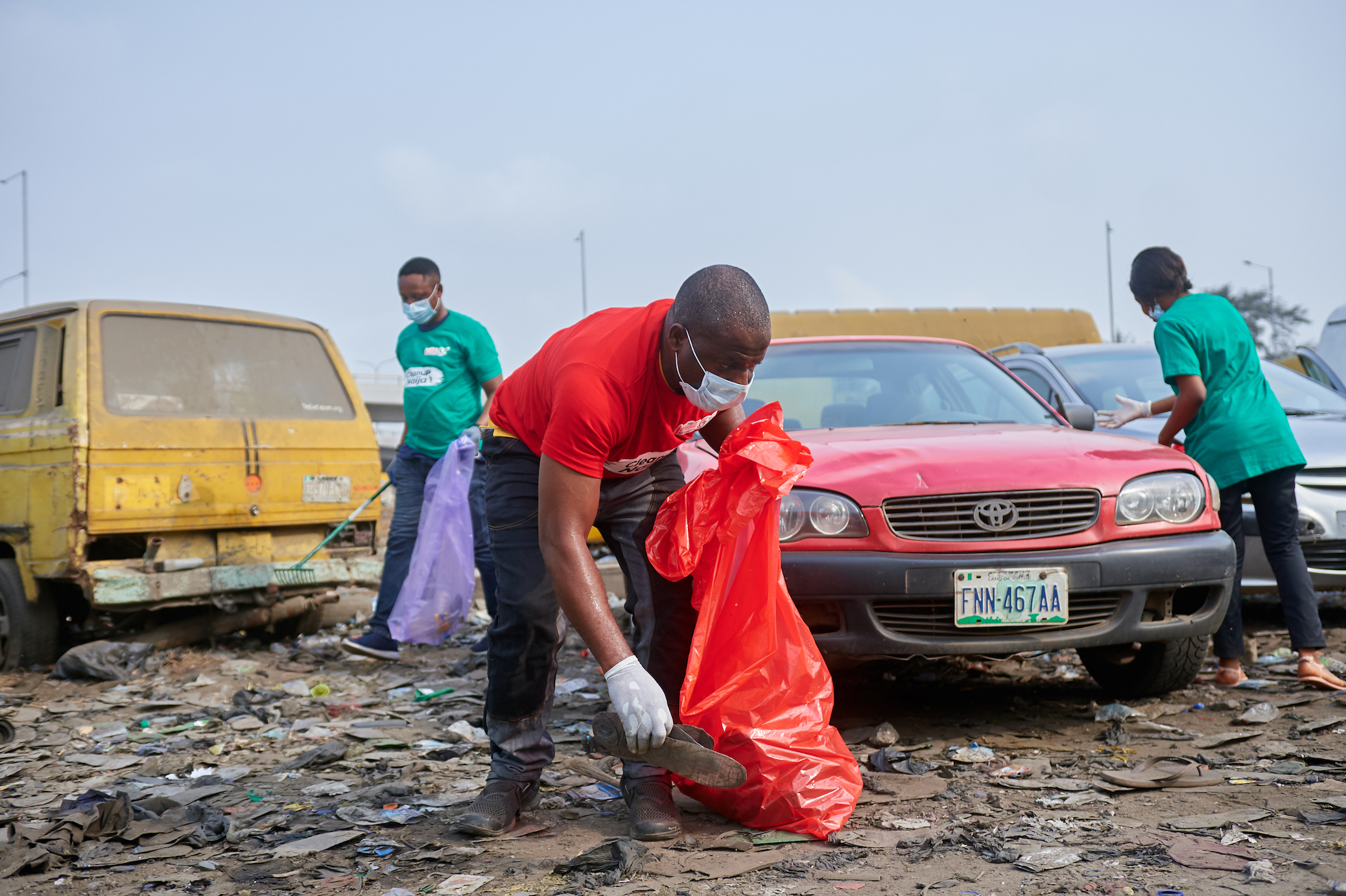Ridding the planet of plastic saves you too
For over a year, Muniratu Raimi has been gathering plastic bottles. Plastics will determine whether she gets a roof over her head or gets thrown out by her landlord. The earth is choking under waste, and a lot of it is plastic. Take Nigeria. The country generates an estimated 32 million tonnes of waste every […]

FILE PHOTO
For over a year, Muniratu Raimi has been gathering plastic bottles. Plastics will determine whether she gets a roof over her head or gets thrown out by her landlord.
The earth is choking under waste, and a lot of it is plastic.
Take Nigeria. The country generates an estimated 32 million tonnes of waste every year—and 2.5 million tonnes of it is plastic waste—much of it not recyclable.
Plastics are indestructible, durable and versatile—very good properties, but those same properties have become environmental issues.
They clog drainages, leading to erosion and flooding. They also pose unprecedented danger to aquatic life.
Around the world, 300 million tonnes of plastic waste is generated every year, according to the United Nations Environment Programme. That’s nearly equivalent to the weight of the entire human population.
Human population continues to grow, and with it an increase in industrialization—which involves production and consumption, and ultimately more waste generated.
The waste shouldn’t be a problem, but one plastic a day is making an ocean of plastic.

Mismanagement of waste over years has contributed to ocean pollution, global warming and environmental degradation.
All negatively impact how humans, plants and animals live. And it calls for immediate remedies to curb further damage to the planet—a global cleanup.
World Cleanup Day is the world’s largest annual social action which engages more than 180 countries to tackle the global waste crisis.
This global social program also seeks to create a strong and unique network of people who share the vision of a waste-free world and a collective belief to eradicate waste from the world.
Civil society organisations and corporate entities, including manufacturers like Coca-Cola who sell products in plastics, are getting on board—and simultaneously championing environmental protection alongside poverty reduction, health and community development.
“We recognise there is a packaging waste problem globally and especially in Nigeria,” says Nwamaka Onyemelukwe, director of public affairs, communication and sustainability at Coca-Cola Nigeria.
“Which is why we pioneered the World Without Waste initiative to engineer innovative solutions to tackle this challenge.
“World Clean-Up Day presents an opportunity for us to act on this mandate as seen by the number of environmental sustainability initiatives we have supported in collaboration with local implementing partners. Ultimately, we seek to drive, create, and accelerate the retrieval and recycling of our packaging, in a bid to aid our environment’s healing”

Coca-Cola Foundation in 2018 launched the World Without Waste initiative for a litter-free world by 2030, considering three pillars: design of its packaging materials, collecting plastic for recycling and partnerships to drive meaningful change.
Four waste-elimination projects have sprung from the initiative, including the Recycling Scheme for Women and Youth Empowerment (RESWAYE), Project Protect 10,000, RecyclesPay, Cleanup Naija, Mission Zero Plastic and Bottles for Books. All focus on empowering women economically and mitigating plastic waste pollution.
W.A.S.T.E Africa used funding from the foundation to create eight green recycling hubs, empower 3,000 waste pickers and women, many of them living in poverty and without education.
“Adequate financing for collection and disposal of plastic waste is one of the biggest issues impacting recycling in Nigeria,” said Olufunto Boroffice, convener of W.A.S.T.E Africa, which implements Bottles for Books as well as Project Protect 10,000. “A primary challenge is the scaled recovery of plastic bottles.”
RESWAYE is in action across Lagos, Yobe Kano, Kaduna, Oyo and Kwara, implemented by local nongovernment organization, the Mental and Environmental Development Initiative for Children (MEDIC) and the Aid for Rural Education Access Initiative (AREAi).
“Seeing the impact we have made in these communities through our network of women and youth recyclers has been deeply fulfilling,” said Doyinsola Ogunye, founder of MEDIC.
“We have ensured the economic empowerment of women, looked after communities, and cleared an inordinate amount of plastic waste from the oceans even in the turbulent times experienced last year”.

The Bottles for Books project also recovered over 3 tonnes of recyclable plastic waste in Kano and the FCT.
The Project Protect 10,000 currently works with more than 900 waste workers and litter control workers, empowering them for socioeconomic lift, capacity building and access to social protection scheme.
RecyclesPay project targets 56 low-tuition schools across the nation’s six geopolitical zones. Parents and guardians are given opportunity to pay tuition through the recovery of plastic bottles. Parents recovered more than 51 tonnes of recyclable plastic.
Raimi alone recovered more than 239 kilos of the waste plastic bottles and was paid N9,570. She chose to pay rent instead, she says.
“I no longer have to worry about shelter for my children.”
